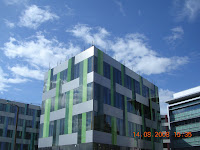The International Conference on Digital Information Management will take place in London, November 2008. The topics in ICDIM 2008 include various areas such as Information Management, Multimedia Information Systems, Information Retrieval, Natural Language Processing, Digital Libraries, Data and Information Quality Management, Data and Information Quality, Database Management, Data Mining, Web Mining including Web, Intelligence and Web 3.0, E-Learning, eCommerce, e-Business and e-Government, Web Metrics and its applications, XML and other extensible languages, Semantic Web and Ontology, Human-Computer Interaction, Artificial Intelligence and Expert Systems, Knowledge Management, Ubiquitous Systems, Peer to Peer Data Management, Interoperability, Mobile Data Management, Data Models for Production Systems and Services, Data Exchange issues and Supply Chain, Data Life Cycle in Products and Processes, Case Studies on Data Management, Monitoring and Analysis, Distributed information systems








